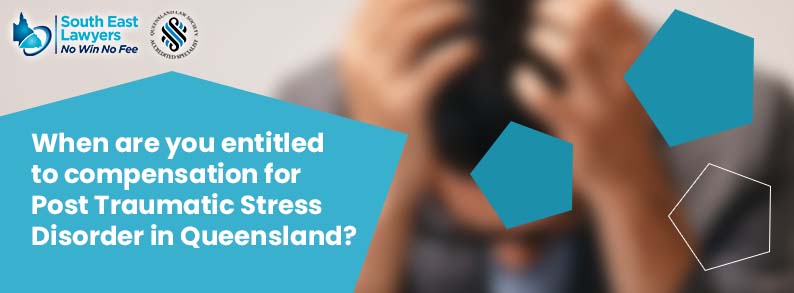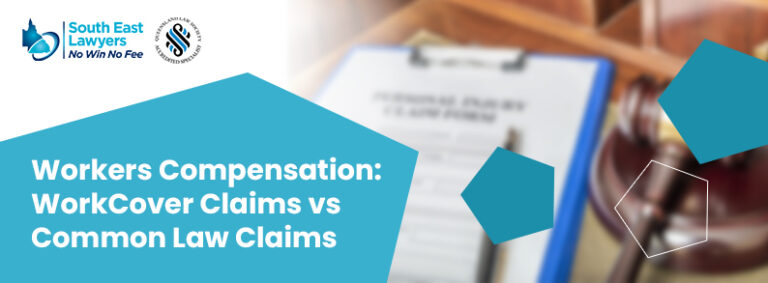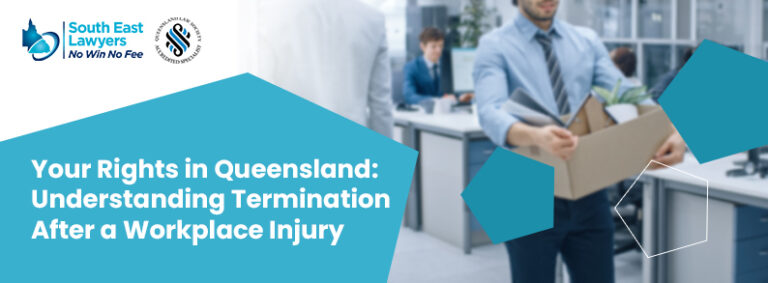Experiencing or witnessing a traumatic event can have long-lasting effects on a person’s well-being and mental health. A condition that could affect someone who has witnessed or experienced a traumatic event is known as Post-Traumatic Stress Disorder (PTSD).
PTSD is a debilitating condition that can impact all areas of a person’s life, including their ability to maintain relationships, work and even function generally.
PTSD can develop due to a number of reasons, and if you have developed it as a result of witnessing or being involved in a traumatic incident, including an incident that has happened at work in Queensland in Australia, you could be entitled to compensation.
In this article, we will provide guidance regarding the circumstances that you may be entitled to compensation, as well as provide you with information about the steps to take when making a claim for PTSD compensation.
First, let’s talk about PTSD and how it can develop.
What is PTSD?
PTSD is a mental health condition that can develop when a person experiences or witnesses a traumatic event. It can include reactions and behaviours that are difficult to control when triggered and these reactions can occur long after the traumatic event has occurred.
For some people, PTSD can be very long-lasting while for others it may last for a few months. It can also affect any person, regardless of their age and background.
Symptoms of PTSD can present in a wide range of ways, however, some of the more common PTSD symptoms include:
- Intrusive memories: Recurrent, distressing memories of the traumatic event, often triggered by reminders such as sights, sounds, or smells associated with the trauma.
- Flashbacks: Vivid and intense re-experiencing of the traumatic event, as if it is happening again. This can cause physical and emotional distress.
- Avoidance: Avoiding places, activities, or people that remind the individual of the traumatic event. They may also try to suppress or avoid thoughts or feelings associated with the trauma.
- Negative thoughts and mood: Persistent negative beliefs about oneself, others, or the world, along with feelings of guilt, shame, or detachment. It can also lead to a loss of interest in previously enjoyed activities and difficulty experiencing positive emotions.
- Hyperarousal: Feeling constantly on edge, irritable, or easily startled. This can result in sleep disturbances, difficulty concentrating, and hypervigilance.
As you may be able to imagine, the impact of PTSD can be quite significant and impact a person’s life dramatically, impacting their ability to work or even function on a day-to-day basis.
Just as PTSD can affect all kinds of people, it can also affect people differently, with the intensity and duration of the symptoms varying.
What causes PTSD?
The cause of PTSD can be varied, though the event that causes it is usually a non-typical, traumatic event. Events like car accidents, physical injuries, natural disasters, physical and/or sexual assaults, life-threatening events, violent incidents, and military combat. Even being witness to some of the above events can cause PTSD rather than the event happening to you directly.
What is vulnerable to PTSD?
As we touched on above, any person can develop PTSD after a particularly traumatic event, however there are groups of people who may be more vulnerable to developing PTSD. Some people that may be more at risk of developing PTSD include:
- Survivors of severe or repeated trauma: Individuals who have experienced severe or repeated traumas, such as physical or sexual abuse, domestic violence, combat exposure, or natural disasters, may be at increased risk for developing PTSD.
- First responders and emergency personnel: Police officers, firefighters, paramedics, and other emergency personnel who regularly witness or experience traumatic events are at higher risk of developing PTSD due to the nature of their work.
- Military personnel: Active duty or veteran military personnel who have been deployed to war zones or have experienced combat are at a higher risk of developing PTSD. The stress and exposure to life-threatening situations during military service can contribute to its development.
- Survivors of interpersonal violence: Individuals who have experienced physical or sexual assault, intimate partner violence, or childhood abuse are at a heightened risk for developing PTSD. The deliberate nature of interpersonal violence can have a profound impact on psychological well-being.
- Refugees and asylum seekers: Individuals who have experienced forced displacement, persecution, or witnessed violence in their home countries may be vulnerable to developing PTSD. The experience of fleeing conflict or persecution and the associated stressors can contribute to its development.
- Children and adolescents: Children and adolescents can be particularly vulnerable to the effects of trauma. Their cognitive and emotional development, limited coping skills, and dependence on caregivers may increase their risk of developing PTSD following traumatic events.
- Individuals with pre-existing mental health conditions: Individuals with pre-existing anxiety, depression, or other mental health conditions may be more susceptible to developing PTSD. Traumatic events can exacerbate existing symptoms or trigger the onset of PTSD.
It’s important to note that vulnerability does not mean that everyone in these groups will develop PTSD. Individual differences, resilience, social support, and access to appropriate care and resources also play significant roles in determining whether PTSD develops after a traumatic event. It’s also important to note that seeking professional help and support can be crucial in managing and recovering from the effects of trauma.
When can you make a claim for PTSD compensation in Queensland?
In Queensland, you may be able to make a PTSD compensation claim if you have developed Post-Traumatic Stress Disorder (PTSD) as a result of a traumatic event for which someone else may be held legally responsible.
Some examples of events that could give rise to a PTSD compensation claim include:
Motor vehicle accidents
If you were involved in a car, motorcycle, or other motor vehicle accident caused by another driver’s negligence or fault, and you developed PTSD as a result, you may be eligible to make a compensation claim.
Workplace incidents
If you experienced or witnessed a traumatic incident at work that caused or contributed to the development of PTSD, such as a serious accident, physical assault, or exposure to a life-threatening situation, you may be able to claim compensation. This can include workplace accidents, violence, sexual assaults, or occupational trauma.
Public liability incidents
If you suffered a traumatic event due to the negligence or fault of another person or organization in a public place, such as a slip and fall, assault, or witnessing a traumatic incident, and subsequently developed PTSD, you may have grounds for a compensation claim.
Medical negligence
If you experienced a traumatic event or received medical treatment that led to the development of PTSD due to the negligence or error of a healthcare professional or medical facility, you may be eligible for compensation. We highly recommend speaking to a lawyer who specialises in medical negligence claims.
Physical or sexual assault
Survivors of physical or sexual assault who have developed PTSD as a result of the trauma may be able to seek compensation from the perpetrator or through government compensation schemes.
Military service
If you are a current or former member of the Australian Defence Force (ADF) and developed PTSD due to experiences during your service, you may be eligible to claim compensation through the Department of Veterans’ Affairs (DVA).
It’s important to note that these examples are not exhaustive, and each case is unique. The specific circumstances of the traumatic event and the subsequent development of PTSD will determine the eligibility for compensation.
Before making any claims or deciding against making a claim at all, consult with a personal injury lawyer who specialises in PTSD claims in Queensland. We can evaluate your case and provide guidance based on your individual circumstances.
What could you claim compensation for in a PTSD compensation claim?
In a PTSD compensation claim you may be to recover losses you have experienced and could potentially experience, depending on the severity of your condition and your unique circumstances.
Some of the things that could be compensated include:
Medical Expenses related to the diagnosis, treatment and management of your PTSD and could include therapy, medications, and healthcare services.
If you’ve lost earning as a result of your condition, such as the condition needed to be treated and you couldn’t work during this time or the condition is currently affecting your ability to work, you may be entitled to compensation.
If your PTSD has resulted in a permanent disability or impairment that affects your ability live your day-to-day life or your ability to work, you may be able to receive compensation.
You may experience pain and suffering due to your PTSD, and you may be able to receive compensation for this impact on your wellbeing.
If you require ongoing care and/or assistance due to the impact of PTSD, then you could be compensated for the costs of these services.
PTSD is a complicated condition and making a compensation claim for it can be difficult, however, talking to a personal injury lawyer can help you understand the compensation you could be entitled to.
Do I need to make a PTSD compensation claim within a certain time frame?
Strict time limits usually apply for all types of compensation claims, including those for PTSD. As various factors could impact the time frame, it’s best to speak with a personal injury compensation lawyer as soon as possible so you know your options.
A personal injury lawyer can also help you with your application so that you meet your deadlines and make your claim in a timely manner.
Who should I speak to about my PTSD compensation claim in Queensland?
If you’re planning on making a claim for compensation due to the development of PTSD or you’ve already made a claim and hit a roadblock, get in touch wit us here at South East Injury Lawyers. We’re experienced personal injury and compensation lawyers who have helped numerous people receive the compensation they are entitled to.
We can help you to understand your options, make applications, negotiate on your behalf, and represent you when required.
Get in touch with us by calling us on 07 5241 7994 or booking a consultation online here.






